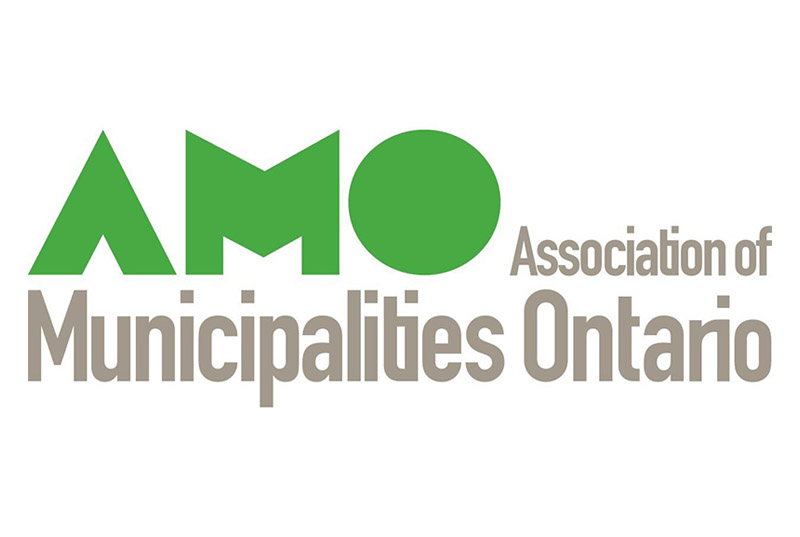Sandy Casselman
Record Staff
CORNWALL – Despite its virtual format, this year’s Association of Municipalities of Ontario (AMO) Conference provided municipal politicians with opportunities to connect and discuss concerns with their peers, as well as with higher tier politicians, and ministry personnel.
As an active participant in municipal politics for roughly 22 years, United Counties of Stormont, Dundas, and Glengarry (SDG) warden Allan Armstrong, who is also Deputy Mayor of the township of North Dundas, has attended many AMO Conferences over the years. This year, due to COVID-19 pandemic restrictions, the Aug. 16-18 annual event was held virtually, which Armstrong said is better than not meeting at all.
“They’re doing the best they can under very difficult circumstances; it’s better than nothing; it’s the only opportunity afforded to us right now to get that many ministers together,” he said, adding that the conference is only one of maybe four or five opportunities each year when caucus gets together. “My preference for normal life would be to be in person; it’s a much different dynamic.”
Aside from its virtual format, Armstrong said the conference followed its familiar formula. In addition to keynote speakers and informative seminars, there were numerous meetings with ministry personnel, as well as delegations on various topics.
“There was nothing really stark that came out of it,” he said. “I spent most of my time as part of delegations providing information.”
SDG officials participated in three delegations focusing on local issues: these included two sessions with the Parliamentary Assistant to the Minister of Municipal Affairs, both of which were attended by Stormont, Dundas, and South Glengarry MPP Jim McDonell; the first focused on the Counties’ Official Plan, which had been modified by the province without consultation with SDG; while the second focused on making it easier for upper-tier municipalities to implement Community Improvement Plans and programming.
The third delegation was held with Sam Oosterhoff, the Parliamentary Assistant to the Minister of Education, and included Armstrong, as well as Municipality of South Dundas Deputy Mayor Kirsten Gardner. Armstrong and Gardner were there to relay their concerns for rural education, which Armstrong said hasn’t seen any real movement.
Armstrong said SDG has identified this as an important issue, which is why they commissioned an outside consultant and created an education committee, of which Gardner is chair. With roughly only 15 minutes to speak with Oosterhoff, Armstrong said the focus was on getting a meeting with Education Minister Stephen Lecce to discuss the findings of SDG’s commissioned report.
“We’re trying to let them know that we’ve done this [report], and we’ve requested very strongly that we would like to get some time with the minister so we can present our findings,” Armstrong said. “We’re looking for a solution that can be used throughout Ontario in all rural areas. We want the same opportunities for our children, as they do in urban areas.”
Armstrong referred to broadband issues that were highlighted this past year when the pandemic forced students to participate in remote learning. He said Gardner was well spoken and did well at making a case for rural education in the limited time they were given.
“[Oosterhoff] said they would get back to us. There are never any promises made. Certainly, we were heard, and our message was very clear. So, we’ll see, but we’re not going to go away,” Armstrong said, adding that they will be following up to be sure SDG is given an opportunity to present their findings and recommendations directly to Lecce.
As part of the Eastern Ontario Wardens’ Caucus (EOWC), the warden, along with other SDG officials, attended meetings with both the NDP and Liberal caucuses, as well as a multi-minister session with members of the provincial cabinet. EOWC priorities were discussed, including better access to broadband internet for rural residents, long-term care and healthcare transformation, and affordable housing.
“You are going to hear about policy work, training programs, and helpful opportunities that AMO creates through Local Authority Services (LAS), our business services arm,” AMO president Graydon Smith said in his statement at the opening of the three-day conference. “AMO brings leaders together, so that we can identify challenges, create solutions, and improve municipal government.”
More than 1,500 municipal leaders, government officials, public servants, sponsors, exhibitors, and media attended the event. There were more than 400 delegation meetings and three Ministers’ Forums. In addition, more than $400-million in additional provincial funding for housing and homelessness, public health, and municipal modernization was announced. Stable Ontario Municipal Partnership Fund (OMPF) investments for 2022 were also announced.









